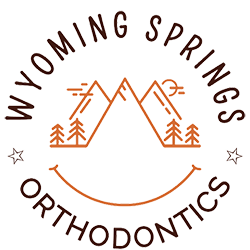
1. What is an Orthodontist?
An Orthodontist has 2-3 years of specialized education beyond dental school and is a specialist at straightening teeth and ensuring proper form and function.
2. Why should I choose an orthodontic specialist?
Teeth, and sometimes entire facial structures, are permanently changed by orthodontic treatment. It is important that the treatment be appropriate and properly completed. Orthodontic specialists have extensive and specialized training that enables them to provide their patients with professional, personalized treatments.
3. Why is orthodontic treatment important?
Straight teeth and properly aligned jaws contribute to good dental health as well as overall physical health. Orthodontic treatment can boost a person’s self-image as teeth, lips and jaws move into position and improve appearance.
4. How do parents know if their child needs orthodontic treatment?
The best way is to visit an orthodontist. The AAO recommends that all children get a check-up with an orthodontist no later than age seven.
5. What if my child still has baby teeth at age seven? Should they still see an orthodontist?
Yes. By age 7, enough permanent teeth have arrived for the orthodontist to evaluate how the teeth and jaws meet, and to identify current or developing problems. If a problem is detected, the orthodontist and parents can discuss when treatment may be necessary.
6. How does a child’s growth affect orthodontic treatment?
Treatment and growth often complement each other. In some cases, the orthodontist takes advantage of a child’s growth to guide jaws and teeth into their ideal positions.
7. How often will I have appointments?
Typically appointments are scheduled every 4 to 12 weeks throughout the course of treatment.
8. How long will it take to complete treatment?
Treatment time obviously depends on each patient's specific orthodontic problem. In general, treatment times range from 12 to 30 months. The "average" time frame a person is in braces is approximately 24 months.
9. What is the average cost of orthodontic treatment?
Fees vary, depending on the treatment needed. We offer convenient payment plans to make treatment more affordable. We will work with you to find a plan that fits your family budget. In addition, most dental insurance plans include orthodontic benefits. Check with your employer’s human resources department to learn about your coverage.
10. Is it too late to have braces if I am already an adult?
A surprising percentage of our patients are adults. In fact, 25 percent of all orthodontic patients are adults. Health, happiness and self-esteem are vitally important to adults. No patient is "too old" to wear braces!
11. Do I need to see my family dentist while in braces?
Yes! Regular checkups with your family dentist are important while in braces. Your family dentist will determine the intervals between cleaning appointments while you are in braces.

